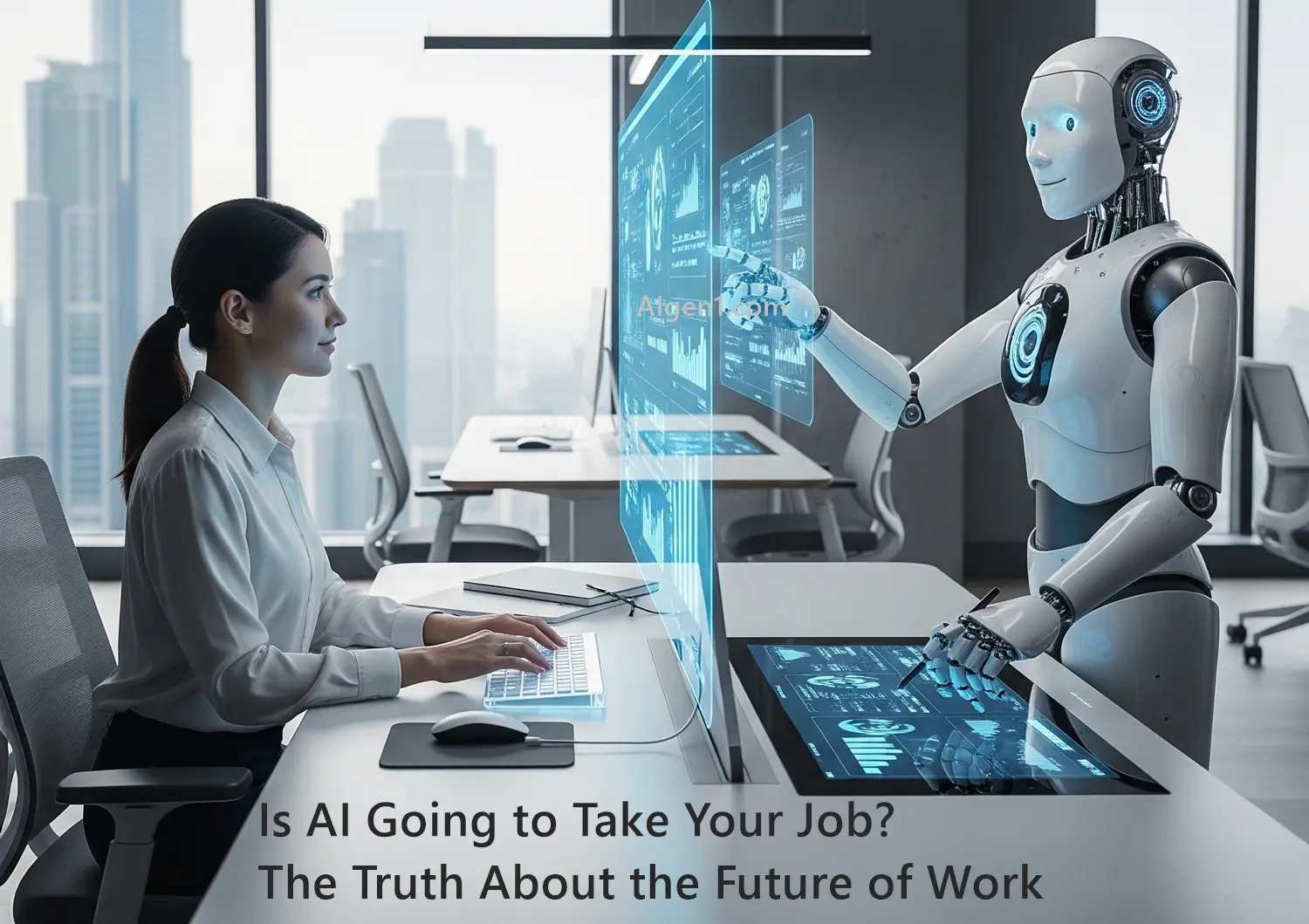Introduction to AI’s Impact on Jobs
The rise of artificial intelligence (AI) sparks both excitement and concern, with many asking, “Will AI take my job?” AI is transforming the workforce by automating tasks and creating new opportunities. This article explores AI’s impact on careers in 2025, highlighting jobs at risk, emerging roles, and strategies to stay relevant in an AI-driven future.
For more on AI’s broader applications, check our AI Assistants guide.

Jobs Most at Risk of AI Automation
Certain roles, particularly those involving repetitive, data-driven tasks, are more vulnerable to AI automation. Here are key examples:
- Data Entry and Clerical Work: AI processes massive datasets quickly, reducing the need for manual data entry.
- Customer Service Representatives: AI chatbots and virtual assistants handle basic queries, minimizing human roles. Learn more in our AI Assistants guide.
- Repetitive Manufacturing Jobs: AI-powered robots perform complex, adaptive tasks in manufacturing.
- Routine Financial and Legal Roles: AI conducts contract reviews and data analysis, freeing professionals for strategic tasks. See how AI transforms finance in our AI in Finance section.
Pro Tip: AI often automates specific tasks rather than entire jobs, allowing workers to focus on higher-value work.
How AI is Creating New Jobs and Opportunities
While some roles may decline, AI is driving demand for new career paths:
- AI Specialists: Roles like AI engineers, data scientists, machine learning experts, and AI ethicists are booming.
- Human-Centric Jobs: Roles requiring creativity, emotional intelligence, and problem-solving are growing, including:
- Creative roles: artists, designers, writers (explore AI’s creative potential in our AI Creativity guide).
- Care professions: nurses, therapists, social workers (see AI’s role in healthcare at Healthcare AI guide).
- Leadership roles: managers, strategists, entrepreneurs.
- Augmented Roles: AI enhances human performance, such as doctors using AI for diagnostics or architects generating designs rapidly.
The future lies in collaborating with AI, not competing against it.
Your Blueprint to Thrive in the AI Era
To succeed in an AI-driven job market, focus on skills machines can’t replicate:
- Upskill and Reskill:
- Data Literacy: Master the skills to understand and convey data insights effectively.
- Emotional Intelligence (EQ): Develop skills to understand and manage emotions, a uniquely human trait.
- Creativity & Innovation: Cultivate original thinking, as AI relies on existing data patterns.
- Lifelong Learning: The fast-evolving nature of technology requires ongoing learning to stay relevant. Use tools like those in our Top 10 AI Study Tools guide.
- Collaboration with AI: Learn to work alongside AI to boost productivity and decision-making.
For more on AI-enhanced learning, visit Coursera’s guide on AI in education.
Conclusion
The question “Will AI take my job?” has no simple answer. AI is reshaping work by automating repetitive tasks and creating new opportunities. By embracing human-centric skills, upskilling, and collaborating with AI, you can thrive in the 2025 job market. Explore AI’s broader impact in our AI Assistants guide.
FAQs on AI’s Impact on Jobs
Which jobs are most at risk due to AI?
Repetitive, data-driven roles like data entry, basic customer service, manufacturing tasks, and routine financial or legal work are most vulnerable.
Can AI create new jobs?
Absolutely, AI is increasing the need for AI experts, creative professionals, healthcare providers, and other human-centric roles.
How can I protect my career from the impact of AI advancements?
Focus on developing emotional intelligence, creativity, data literacy, and collaboration skills with AI systems.
Will AI replace humans completely in the workforce?
No, AI will automate certain tasks but enhance human capabilities, creating opportunities for higher-value work.


